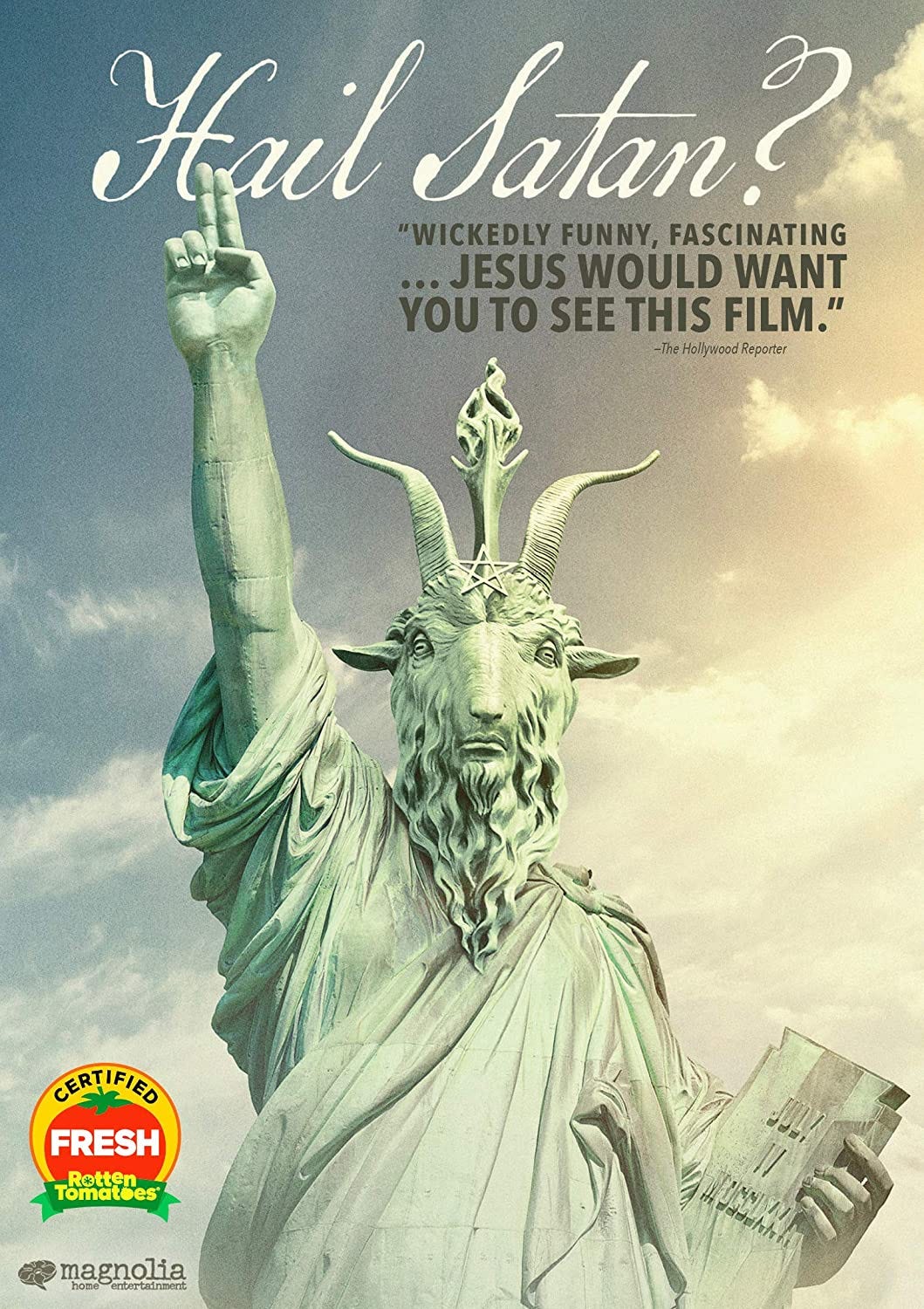Dispatch #8: Spooky Halloween Edition
This Halloween we’ve been discussing the origins of the holiday, society’s fascination with the unnerving, and why we ascribe certain judgements of spookiness to some religious practices over others. So come and join us, if you dare . . .
The Horror of “Cults” (But Probably Not the One You Think)
I am fascinated by our public captivation with cults. Whether it’s the scandalous details of conspiracy or the engaging horrors of true crime, many people uninterested in religion cannot get enough of cults. To a certain extent, I get the hype. I’m a big fan of Wild, Wild Country and am currently listening to (and loving) the podcast Heaven’s Gate. But I (and many other scholars of religion) take issue with how the term “cult” is thrown around. These issues generally stem from one crucial question: what exactly is the difference between a cult and a religion?
The term “cult” is a loaded word. When we think of cults we generally think of crime, conspiracy, or brainwashing. Cults are controlling. Cults are abusive. Cults are violent. The Merriam-Webster Dictionary defines cult as a small, unorthodox religious group with “extreme or dangerous” beliefs. In other words, cults are “bad religion.”
But what happens when we look closer at this definition? What exactly constitutes a “dangerous belief”? Dangerous to whom? And why should we uphold the number of followers and relationship to orthodoxy as moral indicators of a movement? Within these parameters, an itinerant Jew with only twelve followers preaching himself to be the messiah would almost certainly be considered a cult leader.
Calling something a “cult” places a moral judgment on the movement and there is a long, insidious history of this label being used to delegitimize and demonize religious movements that threaten certain forms of power—especially white Christian power. From Haitian Vodou to the Nation of Islam, non-Christian movements that threaten white Christian hegemony are repeatedly dismissed as “cults.” Even religiously unaffiliated movements such as the Black Panthers Party and Black Lives Matter have been labeled as cults in efforts to paint them irrational, threatening, and dangerous.
This does not mean every single movement labeled as a cult is misunderstood; there is a lot of recorded violence and abuse within some of these spaces. But I implore you to be careful with this term. As articulated by scholar Reza Aslan, the category of cult is “a value judgement, more than it is a functional word.” Next time you catch yourself using it, you should be asking:
What narrative does the word “cult” serve in this context, and who might be benefitting from that narrative?
News
‘Go out there and enjoy Halloween,’ Dr. Fauci says by Benjamin Mueller
“It’s a good time to reflect on why it’s important to get vaccinated,” [Dr. Fauci] said, urging those who were eligible for coronavirus shots to get them before Halloween to protect themselves and their children. “But go out there and enjoy Halloween.”
How Halloween sprang from an ancient pagan festival by Cody Cottier
Despite its distinctly modern imagery — kids in cute vampire costumes, pugs in cute vampire costumes, pumpkins carved to look like pugs — Halloween and many of the traditions surrounding it can be traced back at least two millennia, to the Celtic festival of Samhain.
Mormon kids can’t wear Halloween masks by Jana Reiss
It’s long been a policy of The Church of Jesus Christ of Latter-day Saints that masks could not be worn at ward and stake activities. For many years, masks were on the naughty list in the Handbook’s Section 20.6.25, right up there with debutante balls (oh, the horror) and exercise programs that seemed to give a pass to immodest dress or too-twerky song lyrics.
For people of faith, Halloween can be a complicated holiday by Ahmed Elbenni
A 2015 survey conducted by LifeWay Research found that about 54 percent of Christians believe that Halloween can be celebrated “all in good fun,” with Catholics (71 percent) more likely to celebrate than Protestants (49 percent). Twenty-three percent of U.S. Christians do not participate in the festivities due to the holiday's Pagan roots and for other reasons.
Movie Recommendation: Hail Satan?
Earlier this year, the FPP team got together and watched Hail Satan? We haven’t been able to stop talking about it since. The 95 minute documentary by Penny Lane takes a look at the origins of The Satanic Temple and their activism to preserve the separation of church and state. The view of the members is that if Christianity can use religious freedom to yield certain privileges and exemptions in society, the Satanic Temple should be able to as well. The documentary shows us how Christian communities respond when the religious freedom that they claim for public monuments or expressions of faith gets used by a religion so antithetical to their own.
The FPP team has had conversations about whether the Satanic Temple is more of a religious or protest organization, and if there is a meaningful distinction between the two. We’ve had conversations about what constitutes hate speech and who gets to decide. We’ve had conversations of whether Christianity in America is a dominant ideology or an oppressed one. We didn’t know what to expect when watching this documentary, and we love the questions it provoked for us. We highly recommend it this Halloween!
Jobs
Boston Organizer - T’ruah: The Rabbinic Call for Human Rights
Director of Organizing - POWER PA
Director of Organizing - Faith in Texas
Director of Development - MCAN
Data Entry Organizer - Faith in New York
Community Organizer - Jews United for Justice




